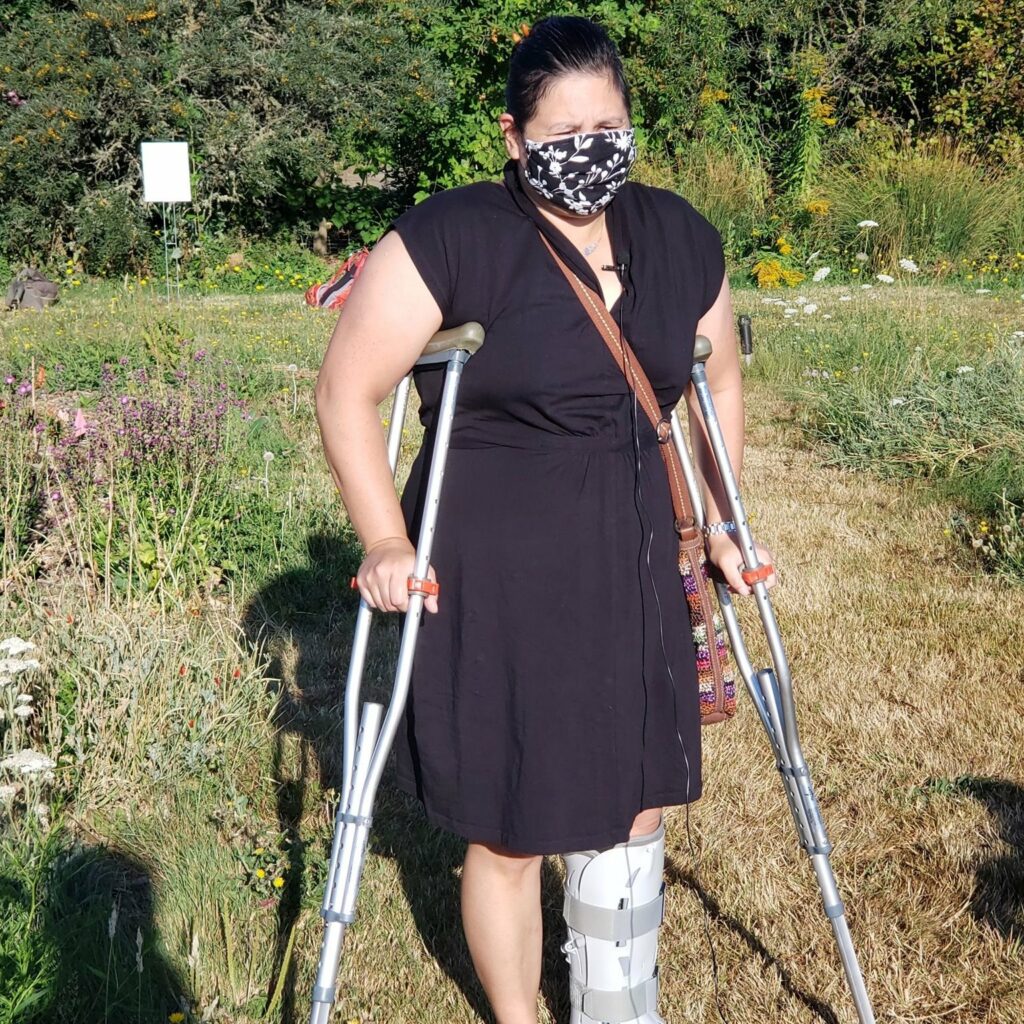Dear Friends,
During these final few hours of 2020, I’ve been taking the time to organize and prepare data for the annual report of the OSU Extension Master Gardener Program (which will be published in mid-late January). Reading through all of the accomplishments and about the resiliency and creativity of Master Gardener volunteers, faculty, and staff during this difficult year makes me so proud to be affiliated with this wonderful community. Our collective work and creativity made a difference across the state, at a time when the gifts of gardening were especially needed.
Perhaps my absolute favorite part of the Master Gardener Program is that it is a community of people who are life-long learners. My entire life, I have been searching for this type of community! I was literally the kid who read the dictionary and every encyclopedia volume in the house, because I loved learning, so much. When I learned about graduate school, and that you could get paid (although not much) to go to school and learn, it seemed like a dream come true. And now, in the Master Gardener Program, I make it a point to learn one new thing, every day.
In case you were wondering, yesterday, I learned that people keep colonies of dermestid beetles to help them clean skulls ~ something which is known as a dermestarium. I also learned that mites are the mortal enemy of dermestid beetles, and can wipe out a colony in a short time period. Finally, I learned that the best ways to keep the mites at bay are to: (1) lower relative humidity to as low as 50% RH, (2) carefully check your skulls before placing them into a dermestid beetle tank to make sure that you’re not inadvertently introducing an ‘intruder’ dermestid, that might be harboring an ‘intruder’ mite under its wings.
I mean, seriously . . . what other job or volunteer program might afford me the opportunity to learn about skull-cleaning beetles?!?!
But personal learning and enrichment is only half of the equation. Sharing knowledge enriches an entire community. And in 2020, Master Gardener volunteers directly reached and taught more than 24,000 people! When COVID restrictions required us to pivot to different ways of reaching and teaching gardeners, Master Gardeners responded in really innovative ways. For example, the Lane County Master Gardeners started researching and writing a ‘Tip of the Week’ segment on Facebook. Across the year, these bits of information about gardening, birds, and houseplants reached 74,560 gardeners. In Linn County, volunteers stepped out of their comfort zone and delivered programming with a prerecorded how-to video on cocoon cleaning coupled with live Q&A sessions on Zoom. And these are just two examples of many innovations that came out of the 2020 programming year.
Megan Wickersham does an amazing job of coordinating the Master Gardener Program in Hood River County. In her annual report of accomplishments, she shared the following note, which I think is broadly applicable across most Master Gardener Programs in the state:
“Overall, this unexpected pause in traditional programming allowed for volunteers to refocus on interest areas, join committees to evaluate projects, and take time to identify future improvements needed. Though almost all volunteers indicated that they prefer in-person trainings and activities, closures provided the opportunity for Master Gardeners to learn and develop confidence in new technologies. Volunteers viewed and participated in online trainings they may not have accessed during a traditional year. There was also increased volunteer participation in plant clinics using the online model, as the system allowed Master Gardeners to more easily identify areas of personal interest as well as program needs.” (Megan Wickersham, Hood River County Master Gardener Program Coordinator)
On this final day of 2020, I wish you and all those dear to you a healthy and happy and fulfilling 2021. I hope that your own personal ‘pauses’ afforded you an opportunity to explore and learn and rest in ways that you might not have known you needed. I hope that your garden, or houseplants, and/or bird feeders have provided unexpected moments of joy, insight, peace, and beauty. Most of all, I hope that we can soon gather to learn and laugh together and I THANK YOU for all that you have done in support of gardening and your communities.
Happy New Year.
~Gail



